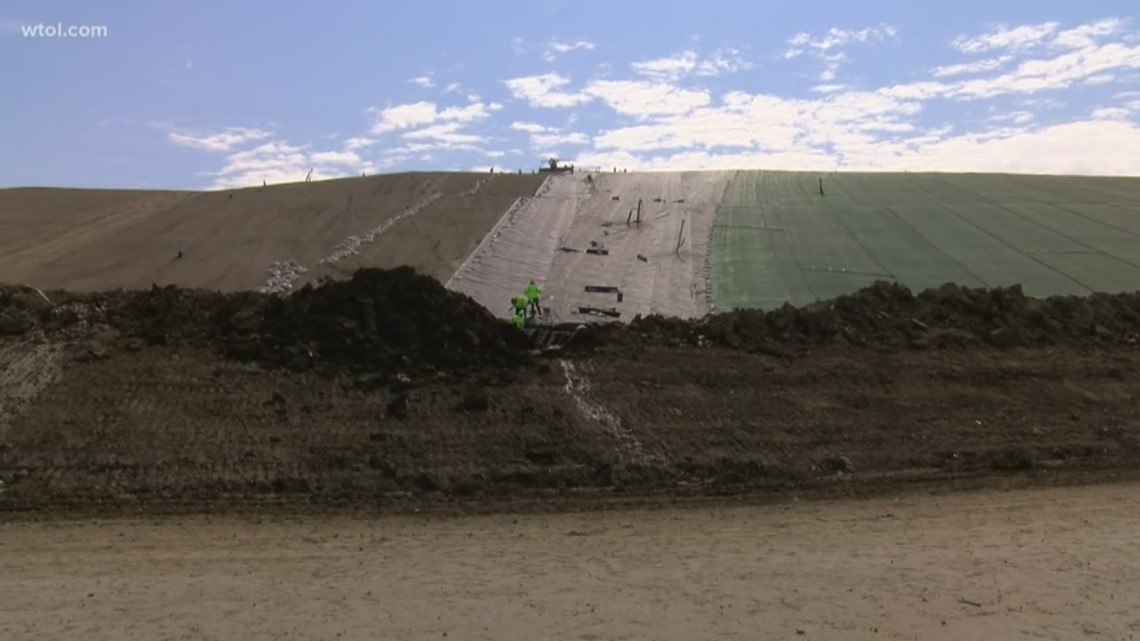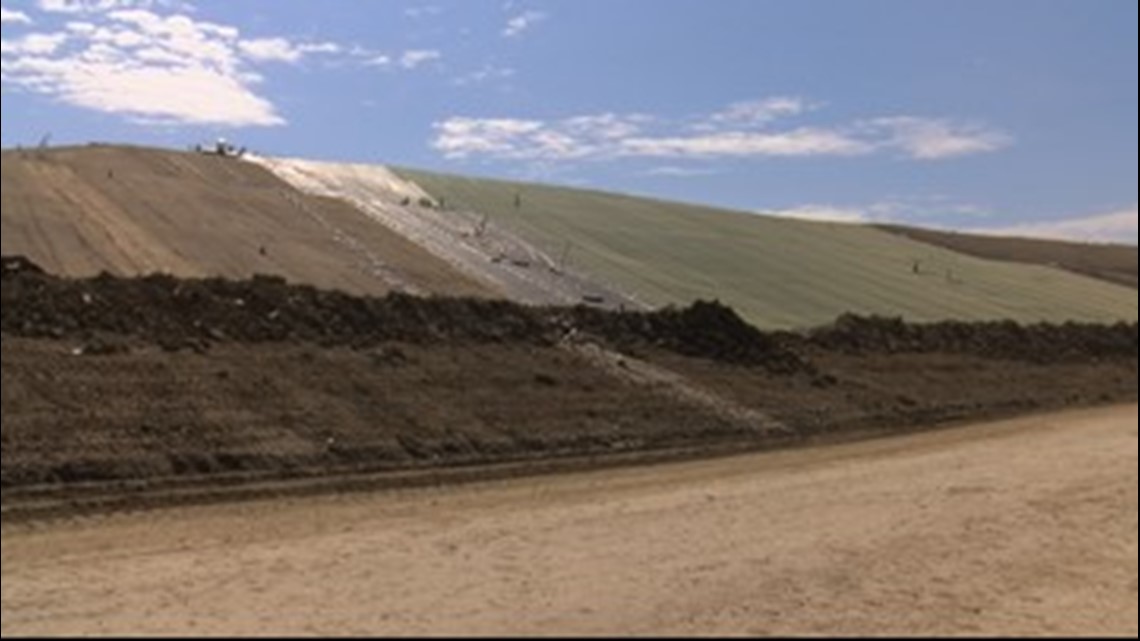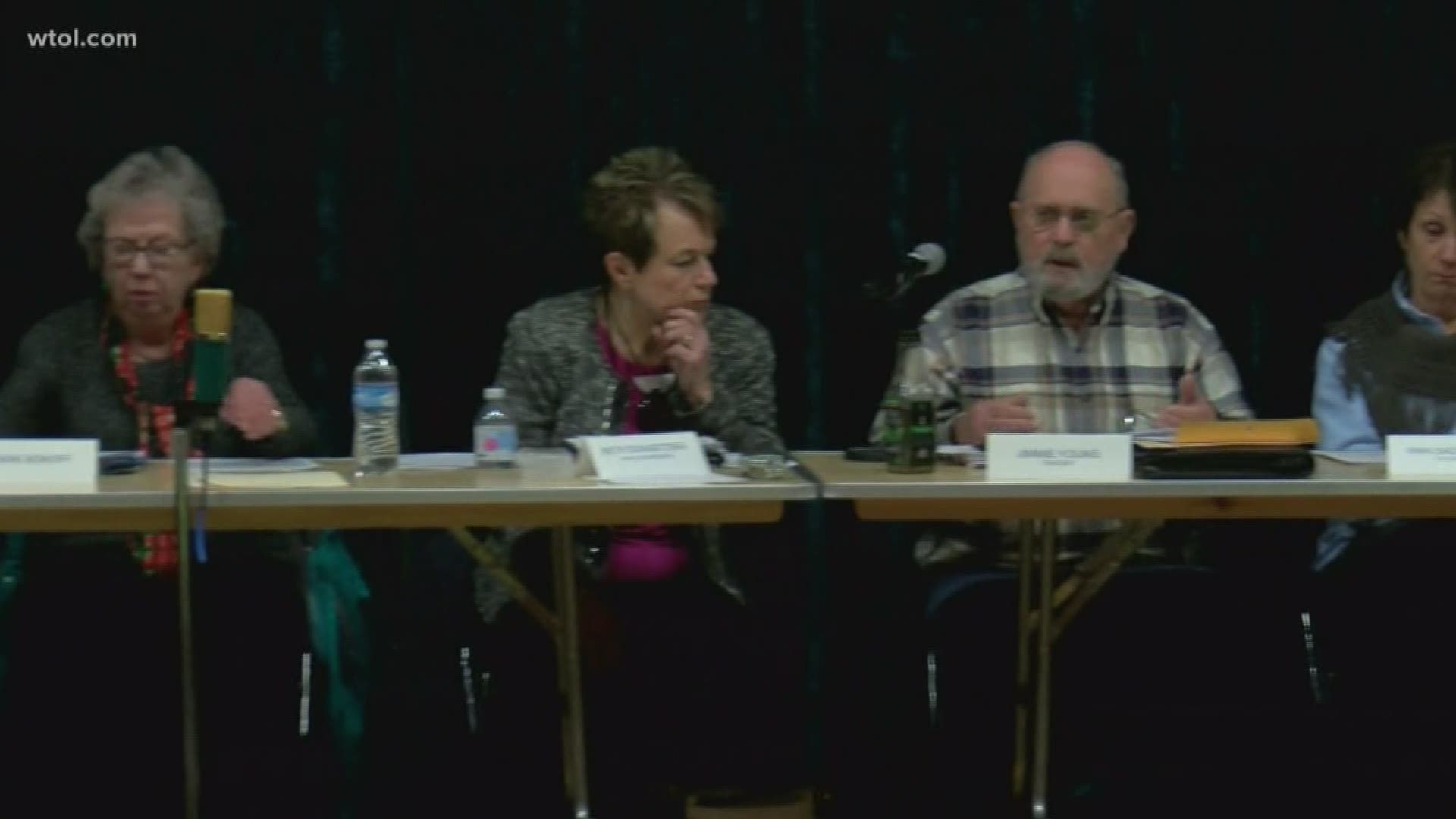TIFFIN, Ohio — A landfill that is trying to clean up its act but is still raising the ire of area residents was granted its 2020 operating license - with several conditions.
The Seneca County General Health District voted unanimously Thursday night to approve the 2020 operating license for Sunny Farms Landfill.
The meeting was held on the campus of Tiffin University because of the expected large turnout, and the Franks Hall was filled almost to capacity.
For years, Seneca County residents, and even residents in neighboring counties, have complained about odors coming from the landfill, which sits just outside Fostoria.
In July, the company, which is owned by Tunnel Hill Partners, reached a settlement with the Ohio Environmental Protection Agency and the Ohio Attorney General's office. The settlement included millions in penalties and fees.
RELATED: 11 Investigates: Regulated Pollution
RELATED: 11 Investigates: Seneca County residents complain of medical problems, broken landfill promises
In some ways that settlement tied the hands of the health board, which voted 7-0 on Thursday night to approve the license. At the time of the state's negotiations with Sunny Farms in the summer, the board had already issued an intent to deny the landfill a 2019 license. Because of that, the board had no say in the deal with the EPA.
But Thursday, the board was able to include in its resolution that Sunny Farms must abide by all the state's condition. That means that violations can now be documented by the state and the county, and those missteps could be used against the landfill when its license needs to be renewed.


Other conditions include the installation of two monitors to register hydrogen sulfide levels. That data will be available on a web site that can be immediately seen by board members. It will also then become public record. Members of Sunny Farms must also meet with the board and staff each month.
Before the vote, the board's attorney said that Sunny Farms has not violated its consent order, but there have been 188 odor complaints in the past four months.
Several of them have been from Bill McAllister, who lives about a mile from the landfill.
"Over the last 30 days it has gotten worse, to the fact that the three days after the last health meeting in November, I was working in my yard and I developed headaches and chest pains that I never had before. And I'm a healthy guy," McAllister said.
Nate Heiser of the Greater Fostoria Environmental Coalition told the board before the vote that the state's EPA orders was the equivalent of a school plan for a struggling student.
"A consent order is like a behavioral plan. You have a kid that's failing dramatically, and he's put on a plan. Now that kid goes from F's to D's. Under this consent plan, the landfill's actions are acceptable, but they aren't normal standards," Heiser said.


At least a dozen Sunny Farms employees were in the crowd, and they cheered loudly when Brian Ezyk, vice president of environmental engineering, told the board to take emotion out of the decision and acknowledge that the company is abiding by their responsibilities.
One year ago, the biggest concern of the landfill was the production of hydrogen sulfide gas, which has that rotten egg smell. New equipment the company is using is burning off that gas, and it is turned into sulfur dioxide. Many residents are concerned that it is simply trading one potentially dangerous gas for another.
In fact, Sunny Farms spokesman Ben Nutter acknowledged that the sulfur dioxide readings will continue to go up in the short-term but that he is confident that the levels will soon begin to fall.
"We are absolutely OK with the conditions put on us," Nutter said. "We are committed to environmental safety and operational excellence. This team was brought in here to fix any issues at Sunny Farms landfill, and we are working on that and continue to improve every day."

